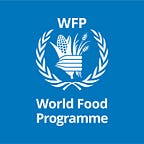“My father and whole family are not going hungry. We’re living a happy life.”
Meet the women who are using their creativity to create change in Afghanistan.
--
In a small room in a two-story mud-brick building in central Kabul, 17 women sit in front of weaving looms, talking softly to each other, tamping down loose threads, and consulting design plans.
They are busy working on some of their first carpets for sale after they graduated from a vocational training programme in January. They have decided to join together, start their own business and share their skills with the world. It’s what people in many parts of the world might call a “start-up.”
These are just some of the 1,000 women who studied carpet weaving, bag making or sewing through six-month training courses in Kabul, supported by the World Food Programme and partner organisations.
The women and their families received monthly cash vouchers from WFP throughout the training to cover food costs and other necessities while they enhanced their livelihoods skills.
“I have six children, my husband has an illness and we never had enough money to cover our expenses,” says one woman named Naqiba. “Before attending WFP’s carpet weaving training, my family and I were opening almonds for a living and selling the shelled almonds for little money. Then, some women from the neighbourhood told me about WFP. The first couple of months it was difficult to learn, but now it’s easy. I like to design and weave carpets, and I make three times what I was making before.”
Nasima is the owner of the home where these 17 women are growing their new business and also a carpet weaving teacher. She says that the women work hard and they’re already seeing the benefits.
“We have an agreement with some local business people to produce carpets for about $26 per square meter,” she said. “This is enough for each of us to make some money. We’re still new but will increase our production slowly and take it to our best level.”
Another trainee, Jeela, was initially upset when she found out she couldn’t attend university. She finished high school but was unable to continue studying because her family could not afford it. She currently lives with her parents and six siblings in Kabul, but her father is now unable to work due to heart disease and high blood pressure. Only one brother is old enough to work and he makes an uneven salary as a taxi driver. Jeela joined one of WFP’s training sessions to help support her family and her creativity and innate business sense has already helped her micro-enterprise become a success.
“As soon as I graduated from training at the beginning of this year, I went to the bazaar and bought materials to start making bags at home,” she says. “I started designing school bags and sent some samples with my parents to show a local shopkeeper in Kapisa province a couple of hours away, where we used to live. They came back with great news: the shopkeeper purchased all my samples and ordered more!”
“Within the first couple of months, I had already sold more than 20 bags in my village and received orders for more,” she said. “I’m now receiving calls from shopkeepers asking for as many bags as I can make. It’s a great business for me. I spend about 150AFN (US$2) per bag and can sell for double the price. I’m now expanding my line to include cosmetic bags and carry-on bags for travellers. Thanks to the WFP project, my father and whole family are not going hungry. We’re living a happy life.”
In 2018, 14,000 women and more than 3,000 men graduated from nearly 300 vocational training programmes. Trainees in these classes learn different income-generating skills and are provided with monthly food & cash by WFP for a period of six months. They also receive equipment from WFP to help start their small businesses.
Read more about WFP’s work in Afghanistan.
Story written by Ann Nallo and Wahidullah Amani.
